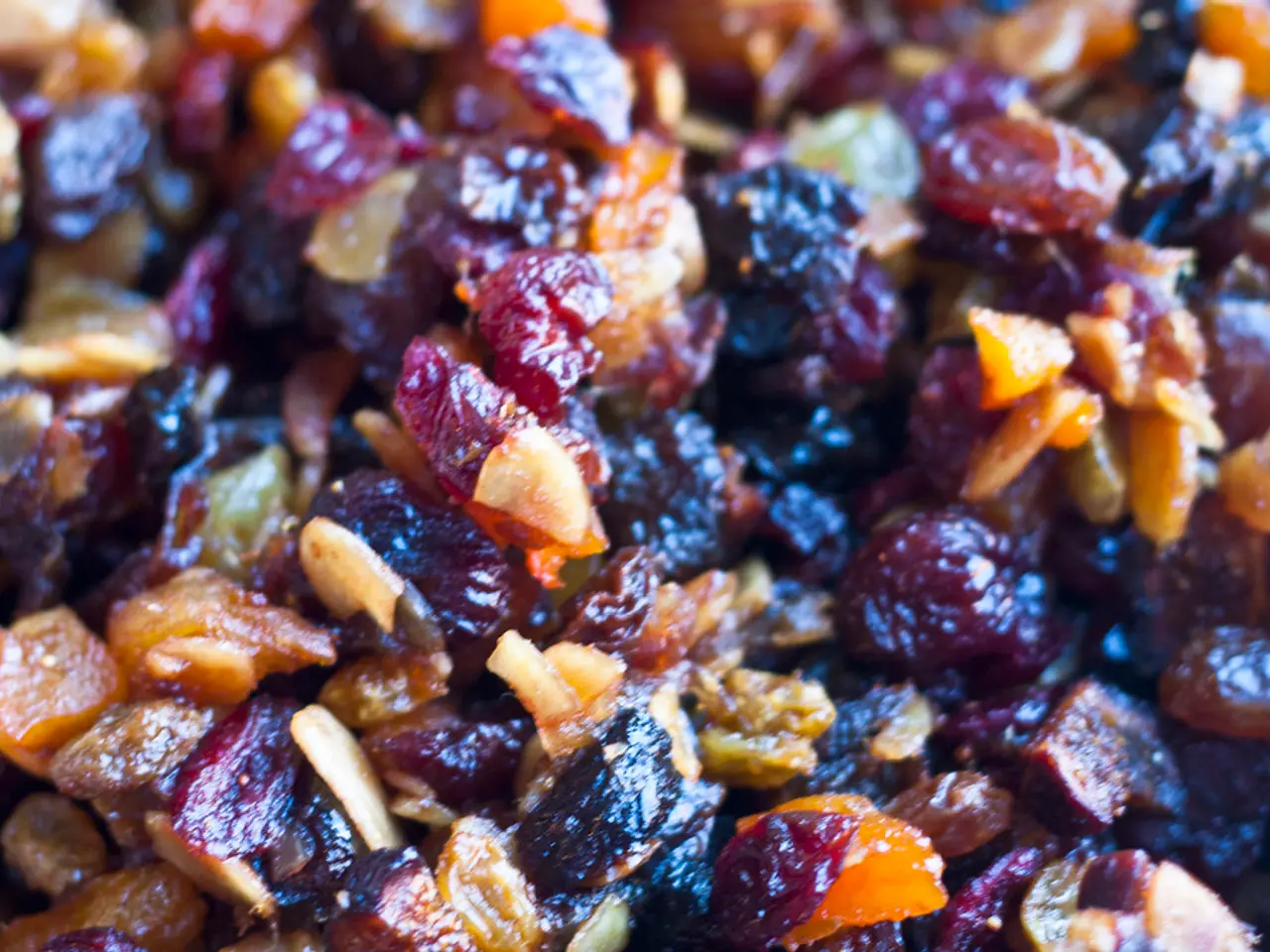Foods that potentially undermine immune system function
In the pursuit of maintaining a strong immune system, the food we consume plays a crucial role. Here's a breakdown of various food types and their impact on our immune system.
Processed foods, high in sugar, salt, unhealthy fats, and additives but low in fiber, vitamins, and minerals, generally negatively impact immune system function. These foods can cause chronic inflammation, disrupt gut microbiome diversity, weaken the gut barrier, and impair the body's ability to fight infections effectively [2][3][4].
Citrus fruits support the immune system primarily because they are rich in vitamin C and other antioxidants, nutrients known for their role in immune function and reducing inflammation. Although explicit details from the search results are limited, citrus fruits are generally recognized for their immune-boosting properties due to vitamin C content.
Foods containing zinc are beneficial for immune function. Zinc is essential for maintaining the integrity of the gut lining, supporting pancreatic enzyme production for nutrient absorption, regulating immune cells, decreasing inflammation, protecting against oxidative damage, and promoting a healthy gut microbiome. This makes zinc-rich foods important for a resilient immune system [4]. Some foods that contain zinc include oysters, beef, baked beans, fortified cereals, chicken breast, cheese, peas, and more.
Cruciferous vegetables (like broccoli, Brussels sprouts, cauliflower) typically support immune function as they contain antioxidants, vitamins, and compounds like sulforaphane that have anti-inflammatory and immune-regulatory effects. While the search results do not explicitly discuss cruciferous vegetables, these are widely known for their supportive role in immune health.
Ginger supports the immune system due to its natural anti-inflammatory compounds. It is recommended alongside turmeric and green tea to help support immune health and reduce inflammation [2].
To support immunity, it is advisable to minimize processed and high-sugar/refined carbohydrate foods and include zinc-rich foods, citrus fruits, cruciferous vegetables, and ginger in the diet. A varied diet rich in nutrients may support the immune system and help reduce inflammation.
Summary Table
| Food Type | Impact on Immune System | Key Notes | |-------------------------------|------------------------------------|--------------------------------------------------| | Processed foods | Negative | Cause inflammation, nutrient deficiency, gut disruption[2][3][4] | | Foods high in sugar | Negative | Promote inflammation and gut imbalance[2][3] | | Foods high in refined carbs | Negative | Similar effects to sugars and processed foods[3] | | Citrus fruits | Positive | Rich in vitamin C and antioxidants (immune boosters) | | Foods containing zinc | Positive | Support gut integrity and immune regulation[4] | | Cruciferous vegetables | Positive | Contain anti-inflammatory and immune-supporting phytochemicals | | Ginger | Positive | Contains anti-inflammatory compounds beneficial for immune health[2] |
By making mindful food choices, we can help bolster our immune system and promote overall health.
- Considering the health-and-wellness aspect, it's important to note that the contextual usage of additives in processed foods can negatively affect the immune system by causing inflammation, nutrient deficiency, and disrupting the gut microbiome.
- The antioxidant-rich food benefits from consuming citrus fruits not only contribute to overall health but also positively impact the immune system due to their high vitamin C and antioxidant content.
- Paxlovid aside, the science shows that foods containing zinc are beneficial for immune function, as zinc is essential for maintaining gut integrity, regulating immune cells, and promoting a healthy gut microbiome.
- In the realm of food-and-drink, cruciferous vegetables, such as broccoli and cauliflower, support the immune system due to their antioxidant and immune-supporting properties.
- While exercising conscious lifestyle choices, adding ginger to your cooking routine can provide immune-boosting benefits, thanks to its natural anti-inflammatory compounds.
- For those prioritizing healthy-cooking and a balanced diet, incorporating foods like oysters, chicken breast, and peas, which are rich in zinc, could help strengthen the immune system.
- As advocates of foodandfoodbenefits, it's crucial to promote the consumption of nutrient-dense whole foods and limit the intake of processed and high-sugar/refined carbohydrate foods to support immunity and reduce inflammation.
- The fashion-and-beauty sphere doesn't typically draw direct connections to the immune system, but one can extend the idea of mindful consumption to skin-care products, choosing those that are formulated with natural antioxidants for added skin and immune benefits.
- In the quest for a healthier lifestyle, one might consider applying retargeting strategies to emphasize the importance of selecting nutrient-rich foods and implementing regular fitness-and-exercise as key components toward achieving and maintaining a strong immune system.




